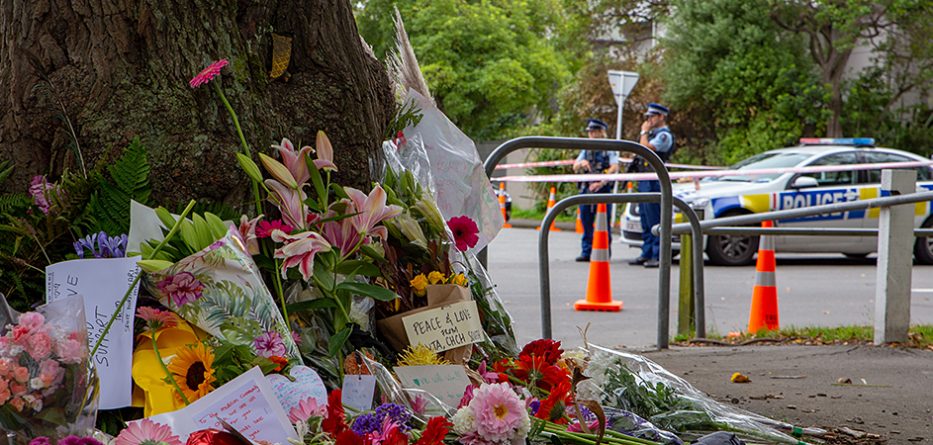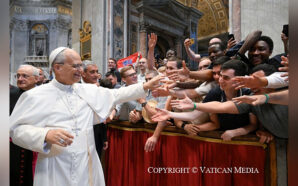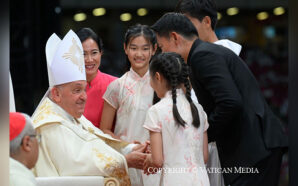15 March marks the one year anniversary of the Christchurch terrorist attacks in 2019.
The murders at the mosques in Christchurch on 15 March 2019 were shocking both in their violence and in their normalcy. Muslims were gathered for prayer. They had greeted one another and were settling in, performing private devotions in anticipation of the communal prayers about to commence. A stranger approached. He too was greeted, “Welcome, brother.” He drew a weapon and fired. First he used a shotgun, later a semi-automatic weapon. He continued firing as he stalked the building. He walked out and drove undetected to another nearby mosque where he continued the slaughter before driving away again. Shortly after, police rammed his vehicle and he was arrested. From beginning to end, the murderous mayhem lasted 20 minutes. Fifty-one people were killed and 49 were injured.
How could one possibly describe such horror as “normal”? When media often misrepresents Muslims, when all Muslims are made suspects because of the criminal behaviour of a few, when Islamophobia becomes rampant, when hate speech is condoned, when irrational fears are made to seem plausible, when people of a particular colour or religion are portrayed as a blight on society, when they are no longer human like a supposedly threatened “us,” when they are considered a pestilence to be eradicated—prior to the 1994 Rwanda genocide, Hutus referred to the Tutsi as “insects”— then killing becomes inevitable and “normal.” The Australian killer was no doubt disturbed, but feeding on a diet of hate speech turned him into a monster. All who contributed to that toxic environment that spawned murder are spattered with the blood of his victims.
A month after the terrorist murders in Christchurch, on Palm Sunday and Good Friday, Christians around the world commemorated the Passion of Our Lord Jesus Christ, and we will do so again in five weeks’ time. I wonder how many of us will make the connection that the Passion we commemorate in words with painted images and statues made of wood and stone, Muslims in Christchurch lived and died in flesh and blood?
- Is not hate speech the equivalent of the crowds baying “Crucify him!”? (Mt 27:22)
- Fifth Station: Just as Simon of Cyrene helped Jesus carry his cross (Lk 23:26), many Muslims travelled to Christchurch to support the families of the victims.
- Twelfth Station: Just as Mary stood near the cross of Jesus (Jn 19:25), Prime Minister Jacinta Ardern, wearing a hijab, stood with the suffering Muslim community of Christchurch.
- Twelfth Station: Just as Jesus said to his disciple, “Behold your mother”, Mr Farid Ahed said to his bereaved daughter, “I am your mother now”.
- Twelfth Station: Just as Jesus proclaimed from the cross, “Father, forgive them” (Lk 23:34), Mr Farid Ahmed said of the man who killed his wife, “I forgive him”.
- Twelfth Station: Just as Jesus died on the cross in fidelity to God (Mk 15:37), 51 Muslim faithful died on the prayer mats and footpaths of the Christchurch mosques.
- Thirteenth Station: Just like Joseph of Arimathea and Nicodemus prepared spices and wrapped Jesus’ dead body in a shroud (Jn 19:38-40), Muslims washed the bodies of the dead and prepared them for burial.
I draw these parallels, not to “Christianise” the event—that would be adding insult to injury, stealing from Muslims their faith-filled response to the tragedy, when they embodied the forgiveness, compassion and mercy that is Islam at its best—but to show connection, to invite solidarity, to build relations.
On 15 March this year, as we commemorate the tragedy of Christchurch, and on 5 April when we commemorate the Passion of Our Lord Jesus Christ, what roles will we play? Will we be Simon, carrying His cross (Lk 23:26) by supporting Muslims still in grief? Will we be Veronica, reaching out to the image of the suffering Christ in those still traumatised? Will we keep watch from afar, like the women disciples (Mk 25:40), or will we draw near like Mary, His mother (Jn 19:25)? Will we be forgivers, or among the forgiven (Lk 23:34)? Will we reach out and touch His/their wounds, like Thomas (Jn 20:25-29), and find faith?
Have no doubt. Christchurch is a Muslim story, but it is our story too, for we are united in human solidarity, united in faith in the one God, sisters and brothers, and what happens to one affects us all. We remember. We are sorry. We will build relations with Muslims, so that friendship, not fear, prevails; and so that killing is no longer normal, but unthinkable.
Rev Dr Patrick McInerney is the Director, Columban Centre for Christian-Muslim Relations, based in the Diocese of Parramatta.








